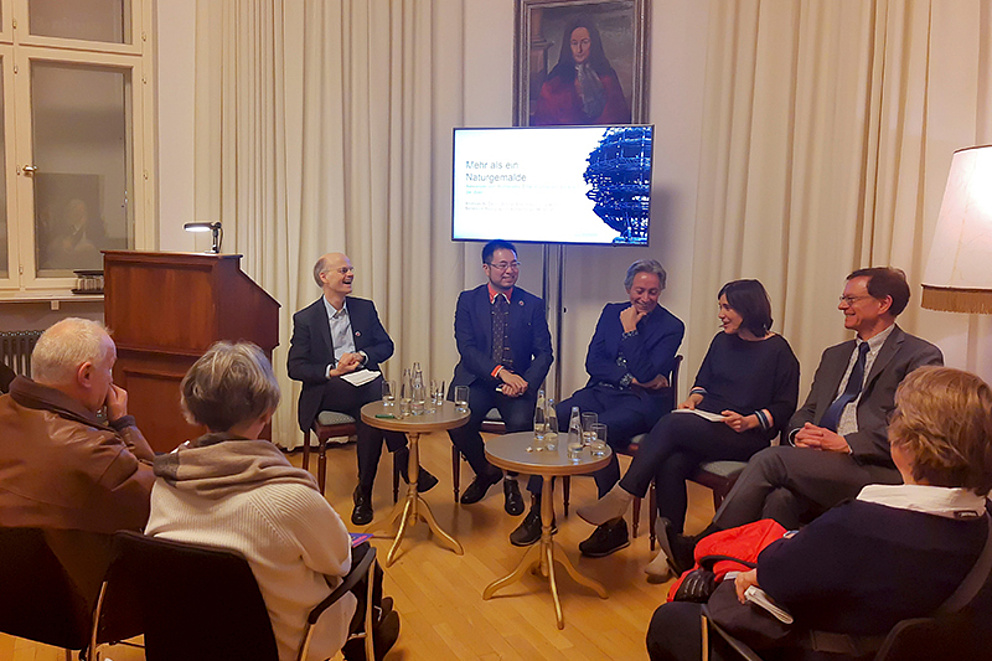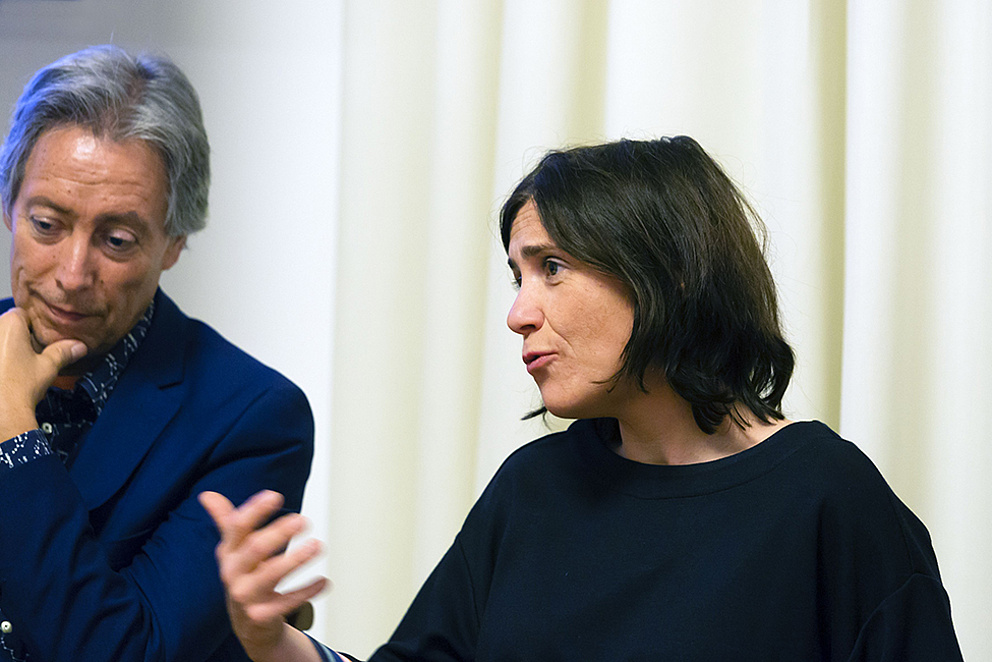
Contact
Press, Communications and Marketing
Tel.: +49 228 833-144
Fax: +49 228 833-441
presse[at]avh.de
updated on April 9, 2020
There are many approaches to the world. More than 100 researchers and artists shared some of them with guests attending the Salon Sophie Charlotte at the Berlin-Brandenburg Academy of Sciences of Humanities on Saturday, 18 January. The Alexander von Humboldt Foundation was on hand with its own programme, which Secretary General Enno Aufderheide introduced: “This evening offers a wonderful opportunity to present our network with its outstanding members to the public and to have a conversation with the audience. I look forward to learning more from Humboldtians and Humboldt experts about how Humboldt has changed our view of the world.”
Views of a changing world from the Humboldt Network
“Is it permissible for the state to regulate me in order to protect me from myself?” With this question, the legal scholar and Humboldt Professor Anne van Aaken began the first talk of the evening, on the subject of “nudging”. “We should be cautious and respect the boundaries set by constitutional law”, van Aaken observed on a critical note. During the following panel discussion Humboldt experts shared their takes on Alexander von Humboldt’s legacy in our view of the world. Romance scholar and Humboldt expert Ottmar Ette stressed the importance of Humboldt’s core theses for the 21st century: “Humboldt did not draw a dividing line between nature and culture. We can definitely learn from this.”
Researchers from the Humboldt Network also offered insights into their work in the area of digitalisation, giving short lectures presenting their findings on language-capable robots and digitalisation in teaching. “Today, we not only have interaction with people, but also with technologies and artificial intelligence. We don’t yet know precisely what effects this will have”, said the sociologist Lena Weber, who conducts research on digitalisation in caregiving.
Germany from the outside
In a discussion with Thomas Hesse, Deputy Secretary General of the Humboldt Foundation, Humboldtians reported on their experiences in Germany. In their comments they stressed not only the advantages offered by Germany’s research landscape but also the difficulties they encountered with bureaucracy and with establishing contacts. German Chancellor Fellow Daphnee Iglesias emphasised that “most of the problems people have with German bureaucracy are in fact problems with the German language. Learning German is absolutely essential to feeling at home here.”
The Salon Sophie Charlotte is an annual event organised by the Berlin-Brandenburg Academy of Sciences and Humanities with the participation of the Alexander von Humboldt Foundation, the Max Planck Society, the Union of the German Academies of Sciences and Humanities, Die Junge Akademie, the Arab-German Young Academy of Sciences and Humanities, the German Academic Scholarship Foundation and the Villa Aurora & Thomas Mann House e. V., and supported by the Gerda Henkel Foundation and the Fritz Thyssen Foundation.


